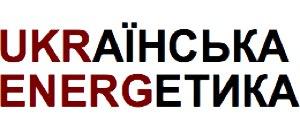Against the background of the debate about the volumes of gas, coal and other energy resources, it is often forgotten about the “invisible”, i.e. saved fuel. It is believed to be the cheapest. Those Ukrainian companies which really count their money and profits, have already invested in energy modernization. Another issue is energy saving in transport. However, something which everyone can allow is the energy modernization of own houses and accommodation.
This opinion was expressed for “Ukrainian Energy” by the Vice President of DiXi Group think tank Anton Antonenko.
“If earlier, insulation was a “pirate”, local phenomenon, and was used to plug up the holes in old apartments (in a quite literal sense) and reduce the bills in newer buildings, today energy modernization is rather common practice for owners or coowners of the buildings. Of course, it has to be preceded by a high-quality audit and installation of appropriate metering devices. More and more residents unite in condominiums, some decide for a decisive step and make a joint investment in energy efficiency. But, there examples are not enough, as they have not yet become a mass phenomenon, there is no ultimate trust to the state and its programs, which encourage energy efficiency; so sometimes it is reported even on delays with the reimbursement of the “warm” loans.
Despite this, joint steps towards energy saving is the future of our public utilities. Let us be realistic and realize that the state will not itself deal with our housing, by spending over 800 bln UAH on insulation. That is why, sooner or later, before or after the “tariff maidan”, it would be necessary to insulate the buildings. And the price depends on how quickly we understand it and how close shall we monitor it.
The recipe to “recapture” the invested funds in energy efficiency is to obtaining a certificate. It shows how much energy is consumed in the building. Obviously, the cost of buildings and facilities which consume less energy should be higher. That’s where the investments are reflected. They transform into savings not only in monthly bills, but also at sale, as they are included in the price tag per square meter.
The government already has a draft law on energy efficiency in buildings. Many discussions are held around it, but the biggest argument of the stakeholders is in low awareness of the people, unpopularity of the draft law. Meanwhile, people hear “promises” about “tariff maidans” and other information.Construction companies are behind slowing down the progress, as they don’t want to be inspected in terms of energy efficiency while commissioning the buildings. Hopefully, good sense will prevail, compromises will be found, and the government will register the respective draft law in the Parliament; and the MPs will not be counting days before the election and will work both on the text and with their constituents for better lawmaking, in order to change things for the better, for European life standards “.





